Major Power Relations
Your Present Location: PROGRAMS> Major Power Relations-
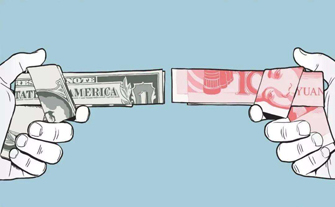
US policies, derogatory speeches seek to curb China’s rejuvenation
By treating China as a grave threat the US is attempting to dilute China's rising influence in the globe and curb the rejuvenation of the Chinese nation, Chinese experts said on Friday following a series of spurious and aggressive rhetorical attacks made by top US officials against China in recent weeks.
2018-10-15 -
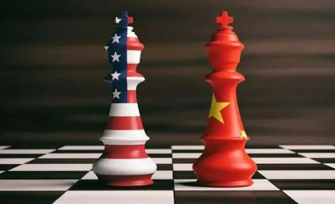
Ding Gang: Despite rivalry, much unites China and US
On my flight from Beijing to Los Angeles, I watched US Vice President Mike Pence's speech on China policy and felt a chill that reminded me of the Cold War. But when I walked out of the airport, a tender breeze alleviated that uneasy feeling.
2018-10-11 -
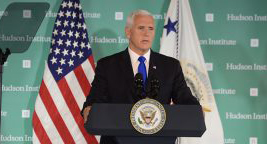
Chen Dingding: 3 Types of Chinese Reactions to Mike Pence’s China Speech
Last week at the Hudson Institute in Washington, D.C., U.S. Vice President Mike Pence delivered the Trump administration’s first major policy speech on China. The speech was highly anticipated in both the United States and China because of its significance and the context in which it was delivered. Indeed, the Trump administration, since it took over in January 2017, has been criticized (rightly) for lacking a coherent China policy or even any China policy.
2018-10-10 -
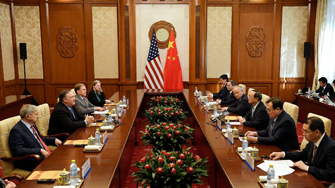
Zhao Minghao: Washington is underestimating East Asian geopolitics
US Secretary of State Mike Pompeo's Asia trip was aimed at promoting the denuclearization of the Korean Peninsula. He conducted a short "shuttle diplomacy" in Japan, the Democratic People's Republic of Korea (DPRK), the Republic of Korea (ROK) and China. Moreover, the trip took place against the background of rising tensions between China and the US. At a time when Washington seems to want to add pressure on Beijing, whether it can continue to cooperate with the Chinese authorities on the DPRK n
2018-10-10 -
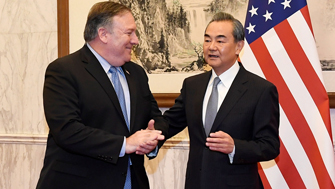
Zhao Minghao: Bamboo curtain will turn iron if US doesn't wise up
Many observers expect the meeting in Beijing between the top diplomats of China and the US to quell tensions amid an escalating trade war and frequent military skirmishes. However, it seems their hopes have fallen through since the talks commenced with deep grievances that leave little room for compromise.
2018-10-09 -
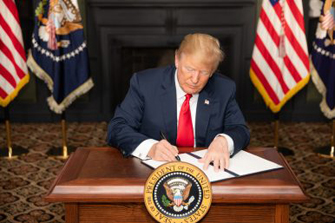
Chen Dingding: The US-China Trade War Has No Winners—Yet
There is little doubt that the most consequential geopolitical event this year is the ongoing trade war between China and the United States. A full-blown trade war between the two largest economies in the world is already in place with the most recent round of tariffs, with the United States imposing another $200 billion worth on Chinese goods and China retaliating with a $60 billion round on U.S. goods. Various analysts and commentators have hotly debated who will win the trade war and the impa
2018-10-09 -
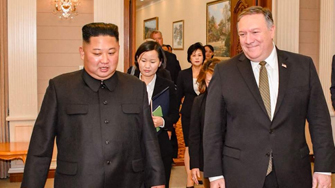
Will worsening China-US relations hinder denuclearization for DPRK?
US Secretary of State Mike Pompeo kicked off his fourth trip to the DPRK this year on Oct. 7. How would the US and the DPRK restart the deadlocked denuclearization negotiations? That is the main focus of international attention.
2018-10-09 -
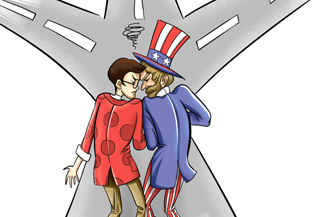
Does Pence's speech signal a new 'Cold War' ?
US Vice-President Mike Pence delivered a speech on Thursday in which he criticized China on multiple fronts. Among other things, Pence accused China of meddling in the US' midterm elections in a bid to undermine the Donald Trump administration. Some have claimed his speech indicates the start of a new "Cold War". What does the speech mean for bilateral ties? Three experts share their views with China Daily's Liu Jianna. Excerpts follow:
2018-10-09 -
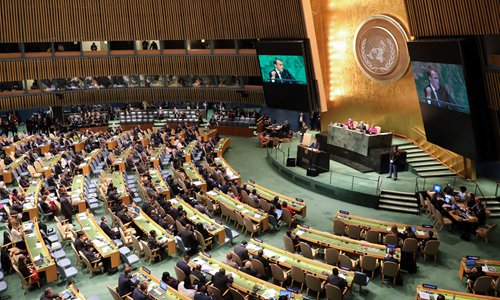
Special payment system to counter US sanctions
China fully supports the EU's proposal to set up a "special payments system" to facilitate trade with Iran and safeguard the Iranian nuclear deal, a move experts say will reduce reliance on the US dollar in global trade and further isolate it from the international community.
2018-10-08 -
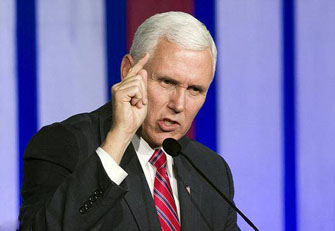
China, US unlikely to engage in a new Cold War
US Secretary of State Mike Pompeo is scheduled to visit China on Monday, following US Vice President Mike Pence's speech which highlighted a more aggressive approach toward China on Thursday.
2018-10-08 -

Macedonia's referendum: What's in a name?
The Republic of Macedonia held a non-binding referendum on September 30 to decide whether to change the name of the constitutional state – which has been used since its independence in 1991 – to the "Republic of North Macedonia". Preliminary results released on October 1 showed that 90 percent of voters said "yes", but the turnout was below 50 percent and the referendum may be invalid.
2018-10-08 -
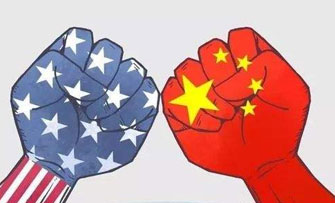
Trade war having negative impact on US economy as deficit widens
The widened US merchandise trade deficit in August shows that US President Donald Trump's trade war has had a negative impact on the country's economy, and more uncertainties loom for the US and world economies, Chinese analysts said on Friday.
2018-09-29 -

Zhao Minghao: Damage from Trump's trade unilateralism goes beyond China, US
Chinese State Councilor and Foreign Minister Wang Yi called on Friday for stronger actions to defend multilateralism in his speech at the General Debate of the unfolding United Nations General Assembly (UNGA).
2018-09-29 -

Liu Zhiqin: US accusations about technology transfer ring false
Amid all the unfair tariffs and false accusations made by the US to attack China, one claim has been particularly irritating: Western countries have continually accused China of requiring transfer of technology in return for access to its market. The US government has repeated this lie many times to make it sound like the truth. However, it is the Western countries that invented the idea of using technology to gain access to other markets.
2018-09-28 -
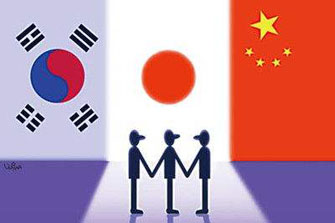
Ding Gang: China-Japan-SK FTA key to ‘Asia for Asians’
After the US began to replace the multilateral rules-based order with a bilateral one and launched one-on-one offensives against global trading partners, officials from China, Japan and South Korea vowed to speed up negotiations for a trilateral Free Trade Agreement (FTA) at a forum in Beijing last week.
2018-09-27 -
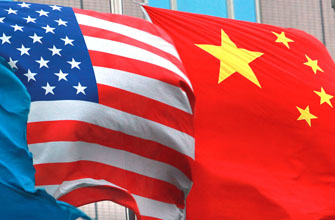
Full Text: The Facts and China's Position on China-US Trade Friction
China published a white paper on Monday to clarify the facts about China-U.S. economic and trade relations, demonstrate its stance on trade friction with the United States, and pursue reasonable solutions.
2018-09-25 -
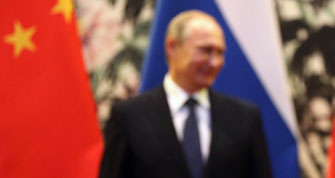
China, Russia Capable of Outlasting US’ Economic Attacks
The US continues to sanction other countries’ economies, a senior Chinese university scholar told Sputnik Friday, because its own economic growth has stalled. But countries like Russia and China, which know struggle and hardship, can easily outlast the Trump administration, he said.
2018-09-25 -
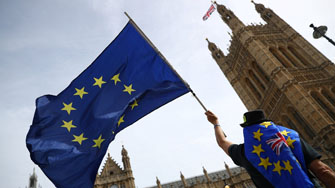
Guan Zhaoyu: Does the UK really mean "no deal Brexit"?
The leaders of EU members met in Salzburg, Austria on September 19 for two days, and Brexit is the major issue of the summit. Although it is not an official summit, the whole Europe pays much attention to it due to its topic.
2018-09-21 -
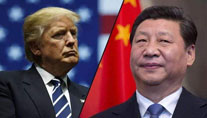
No way China can accept trade talks invitation
Showing defiance in the face of intense pressure from the US, China on Tuesday said it would not back down from an escalating trade standoff with the US, vowing to take measures to counter the latest round of US tariffs on billions of dollars worth of Chinese goods.
2018-09-21 -
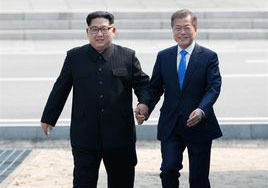
S. Korea's Moon in Pyongyang for much-anticipated summit with Kim
South Korean President Moon Jae-in landed in Pyongyang on Tuesday for a much-anticipated three-day summit with the Democratic People's Republic of Korea (DPRK)'s top leader Kim Jong Un.
2018-09-19
























































































 京公网安备 11010802037854号
京公网安备 11010802037854号





